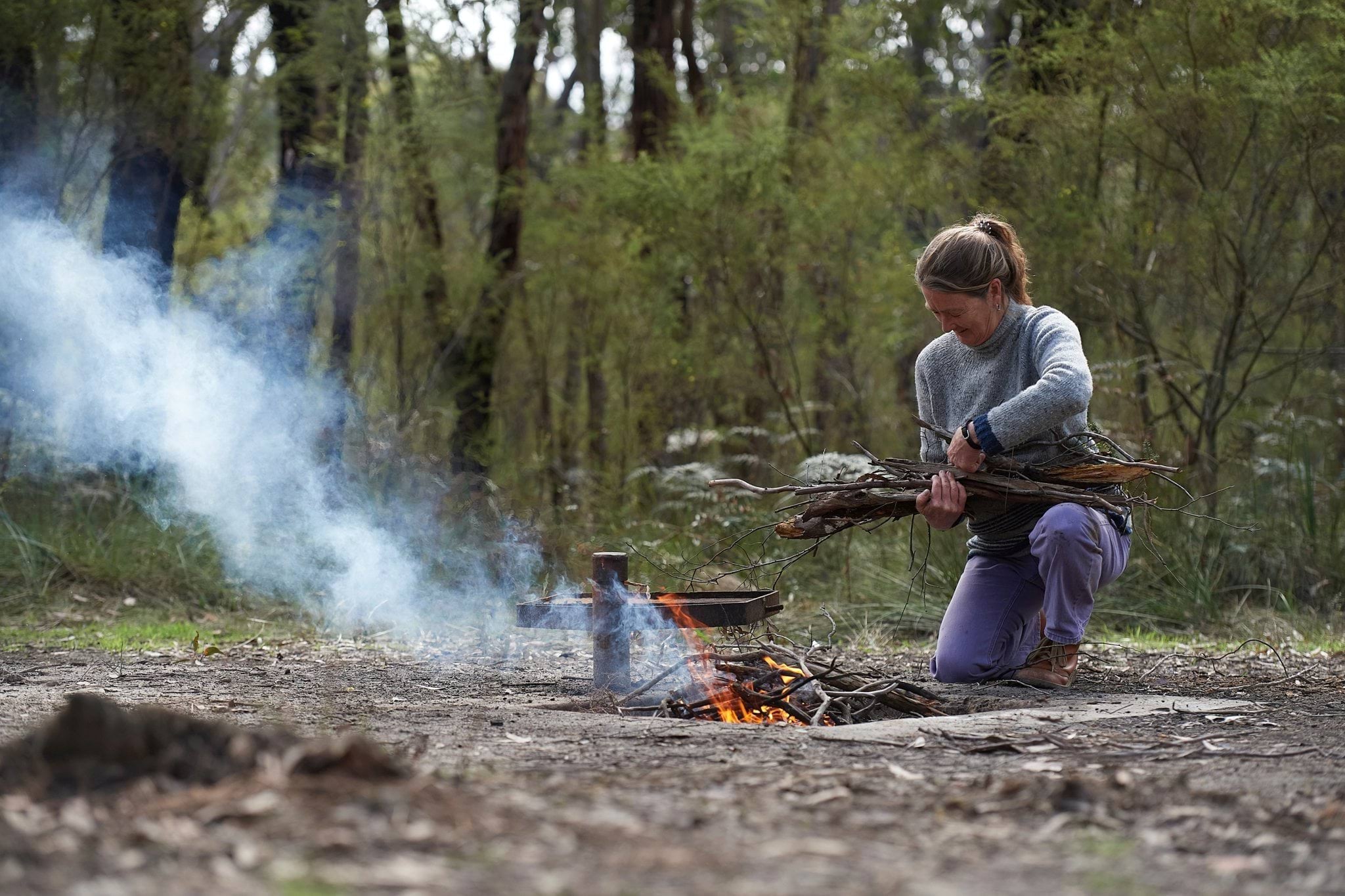In State forests, you can light campfires and use a stove or BBQ when the conditions are safe. To reduce the chance of devastating bushfires, strict rules are in place about when, where, and how you can set up campfires, stoves, and BBQs. These rules are explained below.
What are the rules?
If you’re going to light a campfire, please bring enough firewood from home or pack a bag of firewood before you come. This way you’re guaranteed to have enough wood to maintain the campfire. You’ll also keep the forest floor full of the branches and sticks our wildlife rely on to get by.
It’s best to get firewood from a reputable seller, such as a service station or retail store. If you’re buying firewood through social media, make sure to find out where the wood has come from to avoid supporting dodgy dealers.
Please note you’re not allowed to cut down standing trees or branches even if they look dead, and firewood can only be legally collected from public land at designated firewood collection areas during the official spring and autumn domestic firewood collection seasons.
Further information on buying and collecting firewood is available on the 'Sourcing firewood' page.
With the exception of Total Fire Ban days, you can light a campfire anywhere in a State forest if it’s safe to do so and you follow some basic rules:
- Check weather conditions: If it’s hot and windy, consider if you really need a fire and check the daily Fire Danger Ratings. Campfires are not allowed on Total Fire Ban days and heavy penalties apply. If in doubt, don’t light a fire.
- Set it up safely: The safest option for campfires is to use a purpose-built fireplace. This can be a concrete firepit already installed on-site at a campsite or a portable firepit you've brought from home. The most important thing is that the fireplace is constructed in a way that can prevent the fire from spreading.
- Keep it small and separated: Make sure you clear at least three metres around the campfire of anything that could catch fire, like leaves, branches, and tents before lighting it. Keep your campfire and all logs under one metre across.
- Nominate a watcher: Put someone in charge of watching the campfire who can put it out with water quickly and never leave it unattended.
- Heading out? Put it out: Always fully extinguish your fire before you go to bed or leave, even for a short period, like going for a short walk. If it’s cool to touch, it’s safe to leave.
- Use water not soil: Only use water to put out your fire, not soil. Ashes can stay hot underneath dirt and reignite days later, starting a bushfire long after you’ve left.
* In forest reserves: Campfires are only allowed in fireplaces provided by the land manager.
Built-in BBQs
Built-in BBQs are provided in some recreation grounds and provide an effective and safe way of cooking food in most conditions. Make sure someone is always watching over the BBQ.
Portable gas BBQs and stoves
You can use portable BBQ or camping stoves anywhere in a State forest when it’s safe to do so. For safety, make sure they are commercially designed for meal preparation, and you set up in a stable position and follow all the regular campfire safety rules.
Solid fuel BBQs
You can use solid fuel BBQs anywhere in a State forest when it’s safe to do so. Solid fuel BBQs are those heated by wood, charcoal, or heat beads; including spit style rotisseries, meat smokers, hangis, and hibachi grills. For safety, make sure they are commercially designed for meal preparation, and you set them up in a stable position and follow all the regular campfire safety rules.
BBQs and stoves on Total Fire Ban days
You can use a permanent gas or electric BBQ on a Total Fire Ban day if it is:
- Built of stone, metal, concrete, or another non-flammable material.
- Designed and manufactured only for meal preparation (including portable barbecues).
- Always fixed or in a stable position when in use.
You must:
- Only use the BBQ or stove to cook a meal.
- Make sure there is nothing that can catch fire within three metres of the barbeque or stove
- Supervise the barbecue at all times and make sure you can put it out if necessary.
- Have a hose connected to a water supply or at least 10 litres of water.
- Ensure the barbecue is completely out before you leave.
BBQs and stoves using solid or chemical fuels are always prohibited on Total Fire Ban days.
Updated
